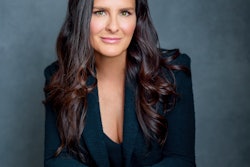One of our most-read articles in recent days dove into debt analysis and how dentists currently had the highest debt-to-income ratios of any profession. Knowing that students who choose dentistry as their profession are now also choosing a crushing amount of debt, does that change not only how they look at their career but also their early job choices?
 Dr. David Rice.
Dr. David Rice.
These are the questions I asked Dr. David Rice, the founder of IgniteDDS, which describes itself as "a movement of dental students, young dentists, and tenured dentists with a united goal of controlling our own destiny and building the practices we always dreamed of."
Dr. Rice has worked with dental students for over a decade, so I asked him if he saw perceptions of the industry changing because of the realities of high debt from dental school. Is debt keeping future dentists out of dental school?
"I honestly don't think that," Dr. Rice said. "I hear that and I read that in Facebook groups all of the time, but every dental school that I know of is basically accepting one person for at least nine or 10 applicants."
In 2023, the American Dental Education Association listed the average debt for a dental school graduate at $296,500. With that in mind, how are today's young dentists attempting to cut down on that debt? Dr. Rice said dental service organizations (DSOs) are often the option.
"What I'm hearing on a very regular basis is new grads and young dentists are choosing practice paths that guarantee them certain income levels," Dr. Rice said. "And they feel they feel -- right or wrong -- that they're locked into that path and that is their only option to the tune of over 70% of them going to big practices."
"I'm going to say, by and large, that (working at a DSO) is the career path immediately out of school, and then about 2 1/2 years later, people are making different choices."
So what is Dr. Rice's advice for attacking that debt? Here's what he shares with young dentists.
"Great mentorship is important, and understanding that, if they want to own a practice in any way, shape, or form, they should eliminate their revolving debt like credit card debt," Dr. Rice said.
"Outside of that, they should do income-based repayment, and they should stash $70,000 where they have access to it. If they can do that, around two years postgraduation, a bank will often loan them the money to get them to ownership, and that is the fastest way to get to financial freedom," Dr. Rice stated.



















